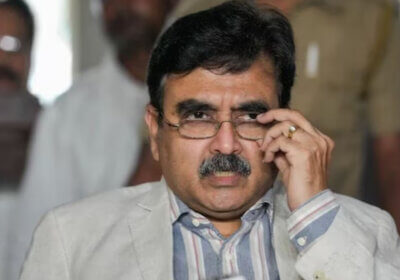The Modi government in India is facing growing criticism over its perceived attempts to undermine the independence of the judiciary. This claim is based on recent actions and statements by government officials, which suggest that they are attempting to exert greater control over the appointment and functioning of judges.
Kiren Rijiju’s Letter To CJI

Law Minister’s Letter To CJI
One of the key events that have sparked concerns about government interference in the judiciary is a recent letter written by Union Minister Kiren Rijiju to Chief Justice of India (CJI) D.Y. Chandrachud. In the letter, Rijiju proposed the formation of panels with government representatives to advise the Collegium – the body responsible for the appointment of judges – on the selection of candidates for judicial posts.
In simple words, the Union Law Minister, in his letter, has suggested to D.Y. Chandrachud that a government nominee must be included in the Collegium that selects and appoints judges for the Supreme Court and the High Courts in the country. Opposition parties and legal experts have slammed Rijiju’s proposal, with the Congress party spokesperson Randeep Singh Surjewala stating that the government is “intimidating the judiciary with a view to capturing it.”
The opposition parties have also highlighted the criticism of the Supreme Court by Vice-President Jagdeep Dhankhar, for striking down the National Judicial Appointments Commission (NJAC) Act, while also referring to the Kesavananda Bharati case. Former Supreme Court judge Justice Madan Lokur, in an interview with Rediff.com, stated that “Without an independent judiciary, we will become a banana republic.”
These statements and actions by government officials, combined with other recent events, have led many to believe that the Modi government is indeed trying to steal the freedom of the judiciary in India.
Critics have pointed out that the government has been reluctant to appoint judges to the higher judiciary despite the vacancies, and has also been using the National Judicial Appointments Commission (NJAC) Act to interfere in the appointment of judges.
The NJAC Act, which was passed by the Modi government in 2014, aimed to give the executive greater say in the appointment of judges. However, the act was struck down by the Supreme Court in 2015 on the grounds that it violated the principle of judicial independence.
Despite this setback, the government has continued to push for greater control over the judiciary, with The Print reporting that the government is “trying to push its way into the selection process of judges”.
The BJP government has faced considerable backlash from multiple opposition parties regarding the Union Law Minister’s letter to the CJI. Congress leader Jairam Ramesh recently tweeted about this matter saying that all of this is an “orchestrated confrontation with the judiciary to intimidate and thereafter capture it totally.” He also mentioned in his Tweet that the Supreme Court Collegium does need reform but the actions of the Modi government are aimed towards “complete subservience”, which is more of a poison pill than a remedy for the judiciary.Other opposition parties have also come out protesting against this step. The Rashtriya Janata Dal (RJD) tagged Rijiju’s suggestion as “shocking.” RJD leader and Rajya Sabha MP Manoj Kumar Jha said that the government is unable to resist the temptation of having a ‘committed Judiciary’.
It is clear that the Modi government’s actions and statements raise serious concerns about its commitment to the principle of judicial independence. If the government continues down this path, it risks undermining one of the fundamental pillars of democracy in India – the separation of powers between the executive, legislature, and judiciary.
It is the responsibility of all citizens, particularly the legal fraternity, to raise their voices against any attempt to undermine the independence of the judiciary. It is crucial to maintain the sanctity of the institution of the judiciary and ensure that it remains independent and impartial.
Conclusion
In conclusion, the recent actions and statements by government officials, particularly Union Minister Kiren Rijiju’s letter, raise serious concerns about the Modi government’s commitment to the principle of judicial independence. It is important for all citizens, as well as the legal fraternity, to protest and stand against any attempt to undermine the independence of the judiciary, which stands to be one of the fundamental and steadfast pillars of democracy in India.























Pingback: Over 300 Supreme Court Lawyers Write Against Law Minister's Rijiju - Panchayiti